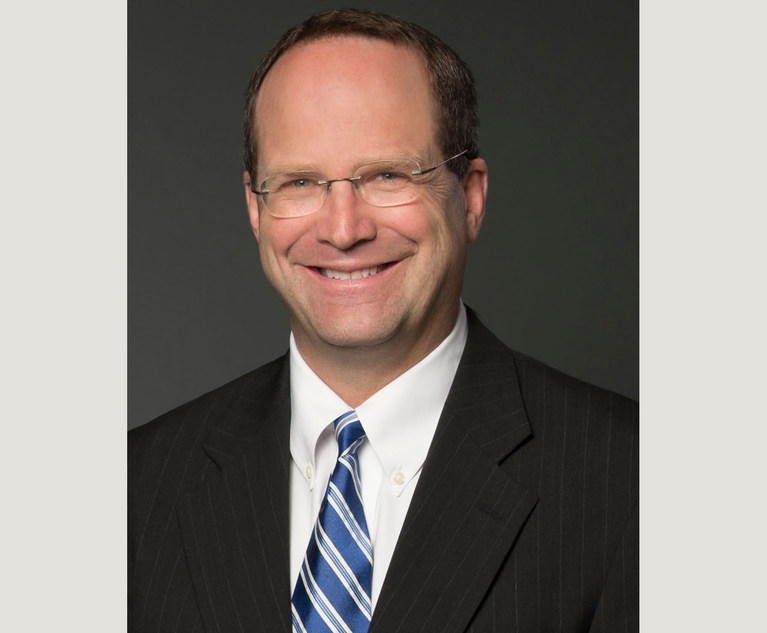A Proposal to Permit Equitable Defenses to Noncompliant Acts That Are Described as 'Void' in an LLC Agreement
In CompoSecure v. CardUX, 206 A.3d 808 (Del. 2018), the Delaware Supreme Court held that when parties use the word "void" to describe the consequences of a noncompliant act under an LLC agreement, the act is deemed void ab initio, which as a practical matter, means the act is incurably void.
October 26, 2022 at 09:00 AM
4 minute read
Commentary
 Albert Manwaring IV.
Albert Manwaring IV. In CompoSecure v. CardUX, 206 A.3d 808 (Del. 2018), the Delaware Supreme Court held that when parties use the word "void" to describe the consequences of a noncompliant act under an LLC agreement, the act is deemed void ab initio, which as a practical matter, means the act is incurably void. With certain limited exceptions, parties cannot later ratify or voluntary fix void acts, and they may not assert equitable defenses to bar a challenge to an alleged void act. This rule effectively allows parties to an LLC agreement to contract out of equity by describing an act as "void" in their agreement.
The consequences of this rule can be harsh and seemingly incompatible with the role of equity in our jurisprudence to ameliorate such results. Accordingly, in XRI Investment Holdings v. Holifield, No. 2021-0619-JTL, ___ A.3d ___ (Del. Ch. Sept. 19, 2022), faced with substantial evidence of the equitable defense of acquiescence to an alleged noncompliant act under an LLC agreement, the Delaware Court of Chancery could not consider this defense under the precepts of CompoSecure. In XRI Investment Holdings, the court held that a co-founder and LLC member's transfer of his units to an entity that he owned was not a permitted transfer under the LLC agreement because he received consideration in the transfer as part of a larger financing transaction. Hence, the court found that the permitted transferee exception was not available, and violated the "No Transfer" provision under the LLC agreement, which in turn, provided that any transfer that violated the "No Transfer" provision was "void." Bound by CompoSecure, the court declared that the transfer of the co-founder's units was void, which left the units in his hands, instead of his transferee entity. Thus, the units were subject to foreclosure by the plaintiff XRI, which maintained an interest in the units as security for a defaulted loan to another entity owned by the co-founder.
This content has been archived. It is available through our partners, LexisNexis® and Bloomberg Law.
To view this content, please continue to their sites.
Not a Lexis Subscriber?
Subscribe Now
Not a Bloomberg Law Subscriber?
Subscribe Now
NOT FOR REPRINT
© 2025 ALM Global, LLC, All Rights Reserved. Request academic re-use from www.copyright.com. All other uses, submit a request to [email protected]. For more information visit Asset & Logo Licensing.
You Might Like
View All
The Importance of Contractual Language in Analyzing Post-Closing Earnout Disputes
6 minute read
Delaware Supreme Court Upholds Court of Chancery’s Refusal to Blue Pencil an Unreasonable Covenant Not to Compete
4 minute read
How New Jersey’s Pragmatic Bankruptcy Approach Sets It Apart Post-'Purdue Pharma'
7 minute readLaw Firms Mentioned
Trending Stories
- 1We the People?
- 2New York-Based Skadden Team Joins White & Case Group in Mexico City for Citigroup Demerger
- 3No Two Wildfires Alike: Lawyers Take Different Legal Strategies in California
- 4Poop-Themed Dog Toy OK as Parody, but Still Tarnished Jack Daniel’s Brand, Court Says
- 5Meet the New President of NY's Association of Trial Court Jurists
Who Got The Work
J. Brugh Lower of Gibbons has entered an appearance for industrial equipment supplier Devco Corporation in a pending trademark infringement lawsuit. The suit, accusing the defendant of selling knock-off Graco products, was filed Dec. 18 in New Jersey District Court by Rivkin Radler on behalf of Graco Inc. and Graco Minnesota. The case, assigned to U.S. District Judge Zahid N. Quraishi, is 3:24-cv-11294, Graco Inc. et al v. Devco Corporation.
Who Got The Work
Rebecca Maller-Stein and Kent A. Yalowitz of Arnold & Porter Kaye Scholer have entered their appearances for Hanaco Venture Capital and its executives, Lior Prosor and David Frankel, in a pending securities lawsuit. The action, filed on Dec. 24 in New York Southern District Court by Zell, Aron & Co. on behalf of Goldeneye Advisors, accuses the defendants of negligently and fraudulently managing the plaintiff's $1 million investment. The case, assigned to U.S. District Judge Vernon S. Broderick, is 1:24-cv-09918, Goldeneye Advisors, LLC v. Hanaco Venture Capital, Ltd. et al.
Who Got The Work
Attorneys from A&O Shearman has stepped in as defense counsel for Toronto-Dominion Bank and other defendants in a pending securities class action. The suit, filed Dec. 11 in New York Southern District Court by Bleichmar Fonti & Auld, accuses the defendants of concealing the bank's 'pervasive' deficiencies in regards to its compliance with the Bank Secrecy Act and the quality of its anti-money laundering controls. The case, assigned to U.S. District Judge Arun Subramanian, is 1:24-cv-09445, Gonzalez v. The Toronto-Dominion Bank et al.
Who Got The Work
Crown Castle International, a Pennsylvania company providing shared communications infrastructure, has turned to Luke D. Wolf of Gordon Rees Scully Mansukhani to fend off a pending breach-of-contract lawsuit. The court action, filed Nov. 25 in Michigan Eastern District Court by Hooper Hathaway PC on behalf of The Town Residences LLC, accuses Crown Castle of failing to transfer approximately $30,000 in utility payments from T-Mobile in breach of a roof-top lease and assignment agreement. The case, assigned to U.S. District Judge Susan K. Declercq, is 2:24-cv-13131, The Town Residences LLC v. T-Mobile US, Inc. et al.
Who Got The Work
Wilfred P. Coronato and Daniel M. Schwartz of McCarter & English have stepped in as defense counsel to Electrolux Home Products Inc. in a pending product liability lawsuit. The court action, filed Nov. 26 in New York Eastern District Court by Poulos Lopiccolo PC and Nagel Rice LLP on behalf of David Stern, alleges that the defendant's refrigerators’ drawers and shelving repeatedly break and fall apart within months after purchase. The case, assigned to U.S. District Judge Joan M. Azrack, is 2:24-cv-08204, Stern v. Electrolux Home Products, Inc.
Featured Firms
Law Offices of Gary Martin Hays & Associates, P.C.
(470) 294-1674
Law Offices of Mark E. Salomone
(857) 444-6468
Smith & Hassler
(713) 739-1250







